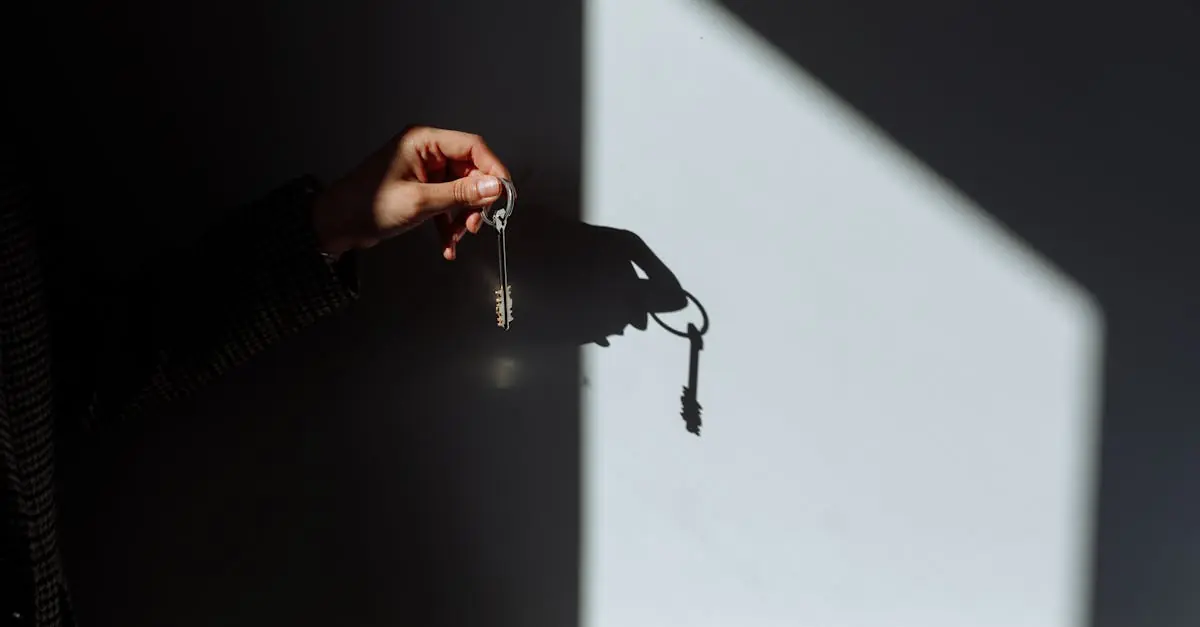Table of Contents
ToggleRenewing a lease can feel like trying to navigate a maze blindfolded. On one hand, you love your cozy apartment; on the other, the thought of negotiating with your landlord might make you want to hide under the bed. But fear not! With the right tips in your back pocket, you can tackle this process like a pro and avoid any unnecessary drama.
Imagine sipping your morning coffee while your neighbor’s dog serenades you with its barking symphony. That’s the joy of staying put! But before you sign on the dotted line, it’s crucial to arm yourself with strategies that will not only save you money but also keep your sanity intact. Get ready to unlock the secrets of lease renewal and turn that dreaded task into a smooth and rewarding experience.
Understand Your Current Lease
Understanding the details of a current lease plays a crucial role in the renewal process. Familiarity with the terms can lead to informed negotiations.
Review Lease Terms
Reviewing lease terms provides insights into rights and responsibilities. Tenants should read through sections covering rent amount, maintenance obligations, and duration. Knowing whether automatic rent increases are specified helps in budgeting for the next period. Look for clauses regarding repairs to understand landlord responsibilities. Awareness of terms for subleasing can expand housing options. Considering these aspects ahead of time allows for better negotiation strategies.
Identify Renewal Options
Identifying renewal options enables better decision-making. Tenants might face choices like renewing under the current terms, negotiating for lower rent, or opting for a month-to-month lease. Evaluating local rental market rates helps in assessing competitive pricing. In cities with high demand, landlords often offer flexibility, so exploring various terms can be beneficial. Having options empowers tenants to make decisions that best fit their lifestyle and budget. Keeping these considerations in mind enhances the leasing experience significantly.
Research Market Trends
Understanding market trends maximizes a tenant’s leverage when renewing a lease. Real-time awareness leads to informed decisions.
Analyze Rental Prices
Track rental prices in the area to gauge competitive rates. Current comparisons can reveal if the proposed rent increase aligns with market standards. Collect price data from online listings and local agents for a comprehensive view. Maintaining an awareness of price fluctuations helps identify potential negotiation points. Use platforms like Zillow or Rentometer for reliable statistics. Analyzing these factors supports effective discussions with the landlord.
Explore Comparable Properties
Consider visiting comparable properties to evaluate amenities and pricing. Comparing other units can highlight disparities in what landlords offer. Focus on location, size, and available services to make informed choices. Gathering data on nearby units strengthens negotiation power during discussions. Note any unique features or benefits that stand out. These insights can lead to better lease terms and rental rates when negotiating.
Communicate with Your Landlord
Effective communication with the landlord plays a pivotal role in lease renewal. Clear dialogue leads to better understanding and smoother negotiations.
Schedule a Discussion
Setting a specific time to discuss lease renewal shows commitment. Proposing a meeting allows for face-to-face conversations and addresses concerns directly. Prioritize times that suit both parties and propose flexible options. Confirming the meeting in advance helps ensure both sides prepare key points. Discussing mutually agreeable times can foster a cooperative atmosphere.
Prepare for Negotiations
Preparation sets the stage for successful negotiations. Review the current lease and notes on market rates before the meeting. Compiling data strengthens the tenant’s position while discussing terms. Listing desired changes, such as reduced rent or extended lease duration, clarifies priorities. Anticipating potential objections allows the tenant to respond confidently. Armed with comparable rental data, a tenant can effectively argue for better conditions.
Propose Your Renewal Terms
Proposing renewal terms empowers tenants to shape their living conditions. Effective negotiation helps build favorable lease agreements.
Adjust Rental Price
Renegotiating the rental price starts with market research. Tenants should carefully evaluate local rental rates to establish a reasonable figure. Providing data from platforms like Zillow can strengthen the case for a lower rate. Express willingness to renew while highlighting competitive rents in the area. Discuss specific examples of similar units with lower prices. This information makes it easier for landlords to consider adjustments. Mention any long-term tenancy to illustrate stability and responsibility. Building rapport during these conversations leads to more fruitful negotiations.
Request Maintenance Improvements
Requesting maintenance improvements enhances the overall living experience. Tenants should create a list of needed repairs or upgrades, prioritizing essential issues. Communicating specific examples clearly outlines expectations. Sending photos or documentation of maintenance requests can help demonstrate urgency. Proactive dialogue about desired improvements often invites collaboration. Landlords appreciate well-organized requests, which can lead them to agree promptly. Emphasizing that improvements benefit both parties can encourage action. Highlighting the overall value added by these enhancements may sway the landlord’s decision.
Finalize the Lease Agreement
Finalizing the lease agreement marks a crucial step in the renewal process. Proper attention at this stage ensures both parties are aligned on expectations and responsibilities.
Read the New Lease Carefully
Reviewing the new lease remains essential. Key terms may change, affecting costs or obligations. Tenants should focus on clauses related to rent increases and maintenance responsibilities. Having clarity on these points helps avoid surprises later. Not reviewing can lead to misunderstanding or disputes regarding the conditions of the lease.
Sign and Keep a Copy
Signing the lease solidifies the new agreement. Before signing, confirm all requested changes are accurately reflected. Once signed, keeping a copy of the lease enhances record-keeping. This document serves as a reference for rights and responsibilities throughout the lease term. Storing it in an accessible location ensures transparency and easy retrieval when needed.
Conclusion
Navigating the lease renewal process doesn’t have to be a daunting task. By employing the right strategies and staying informed, tenants can secure favorable terms and maintain their peace of mind. Understanding the current lease and researching market trends are critical steps that empower tenants in negotiations.
Effective communication with landlords fosters a collaborative environment, making it easier to propose changes and improvements. By being proactive and prepared, tenants can advocate for their needs and ensure a smoother renewal experience. Ultimately, a well-negotiated lease renewal can lead to a satisfying living situation that meets both financial and personal needs.








